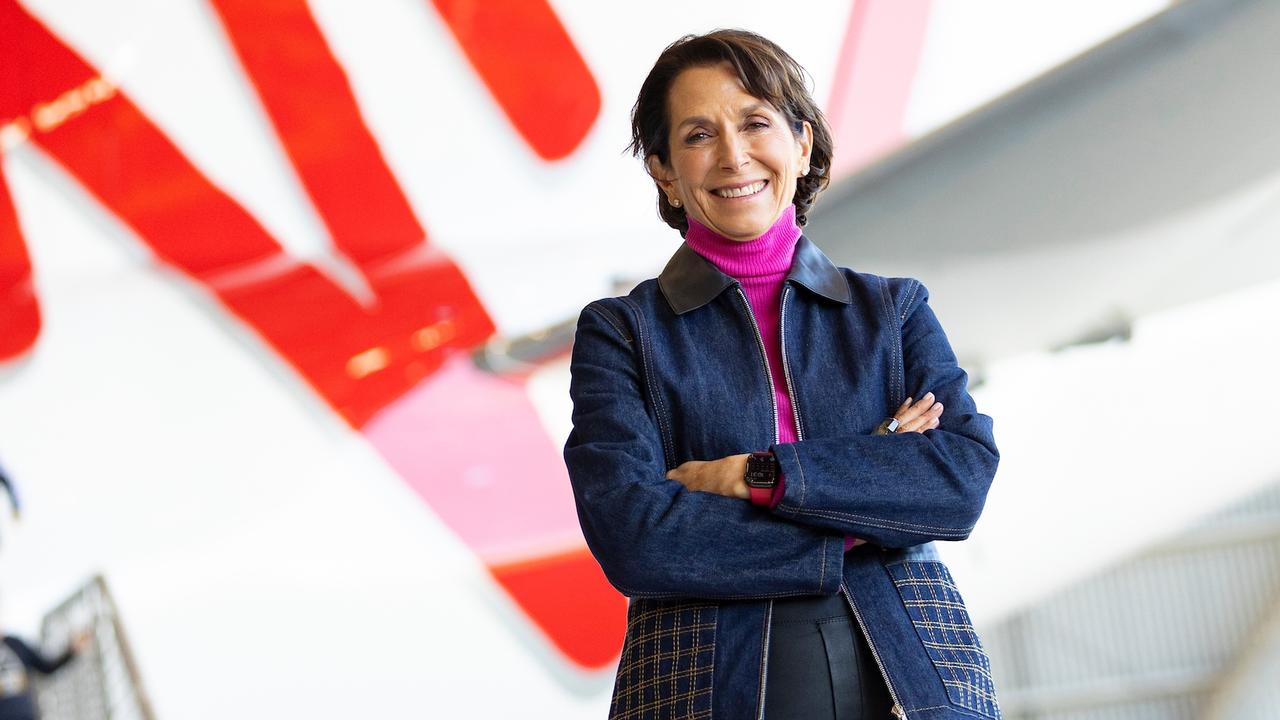Beem It CEO Mark Britt tips fast-growing take up of digital wallets, QR code payments
Digital wallets and QR codes will become dominant over the next five years, as the payments sector experiences a ‘generational and structural shift’.

Business
Don't miss out on the headlines from Business. Followed categories will be added to My News.
Digital wallets and QR codes will become a dominant payment type over the next five years as the Australian payments sector sees a “generational and structural shift” that puts mobile phones at its centre.
That’s the view of Beem It chief executive Mark Britt, who also predicts a big future for real-time payments in Australia, despite a slower uptake here relative to other global markets. Beem It is a payments app and digital wallet owned by eftpos, which is merging with BPAY and the New Payments Platform.
“The uptake of real-time payments has not been as quick as you would have guessed, but it is also now accelerating, predominantly driven by Covid,” Mr Britt said.
“Over time, over the next five years, we see (digital mobile) wallets becoming the vehicle for initiation of that payment. Wallets will become the way I choose how I want to pay, and how I want to manage my money.”
His comments come amid sweeping changes in the local sector after the federal government late last year announced the biggest overhaul of the payments landscape in more than two decades.
After drawing on three key reports, Treasurer Josh Frydenberg flagged a new regime which could rein in the power of Apple and Google in the payments sector and force them to invest in the $650bn-a-day payment system.
At the time, Mr Frydenberg said he wanted to ensure “Australia makes the rules, not Silicon Valley” in the domestic payments sector, and flagged a broader definition of what constitutes a payment system.
The banks – particularly Commonwealth Bank – have long been at loggerheads with Apple over restrictions on access to iPhone chips, which interact with merchant payment terminals.
Mr Britt wouldn’t comment directly on the regulatory changes and their potential impact on Apple and other players, but he said: “Eftpos is committed in all of its efforts to building a healthy ecosystem to allow digital innovation and protection of individuals and small business.”
Mr Britt is a former CEO of Nine Digital and co-founded iflix, a video streaming service across Asia.
Beem It provides instant person-to-person payments to bank accounts via debit cards, and is broadening out as a social spending platform for consumers and businesses.
ACI Worldwide data analysed by McLean Roche Consulting shows Australia sits outside the top 10 global markets for real-time payments, with India, China, South Korea, Thailand and Britain the top five.
McLean Roche’s Grant Halverson said the New Payments Platform – which also facilitates real-time payments – had its first month of declining sales in November.
A separate report by MWE Consulting said debit cards had about 57.6 per cent market share in the year ended November 30, compared to 42.4 per cent for credit and charge cards.
Mr Britt said he expected that Beem It would continue to attract new customers and transactions and was growing by about 25 per cent, year on year.
“Australian businesses have sometimes been slow to respond to global trends while Australian consumers have been early adopters … we are seeing that gap close,” he added.
“There is a generational and structural shift toward mobile being the centre of my world, the centre of my life. That will ultimately be done by QR.
“Personally there is no doubt in my mind that Beem It will have tens of millions of customers over the next five to 10 years.”
Beem It currently has 1.7 million members.
An early step in Mr Britt’s plan to better connect consumers and business and grow Beem It is via a new cashback rewards system that businesses will eventually be able to customise. It has been launched with 600 merchants.
Mr Britt said the idea was to create an ecosystem where retailers and other merchants could set the terms of their own rewards program and better connect with customers.
“Big tech companies globally have those tools online; most small and medium-sized businesses don’t. The big guys in Australia have those tools in their businesses because they’re able to invest in them,” he said.
His comments come amid changes at the helm of eftpos, as CEO Stephen Benton steps down after the three-way merger was finalised. He led the group for almost four years. Mr Britt said Mr Benton had “re-energised eftpos”, and positioned the group for the future.
The merged BPAY, eftpos and NPP will be led by new CEO Lynn Kraus, an EY Oceania transaction strategy and execution partner. Former AMP chair Catherine Brenner heads the merged entity’s board.
The competition regulator gave the merger the green light in September following the receipt of a court-enforceable undertaking. That included maintaining three separate brands and a push for least-cost routing, so that merchants and customers can easily direct payments through the cheaper eftpos system.
BPAY boss John Banfield last month joined embattled credit score and data firm illion as CEO.
Originally published as Beem It CEO Mark Britt tips fast-growing take up of digital wallets, QR code payments





